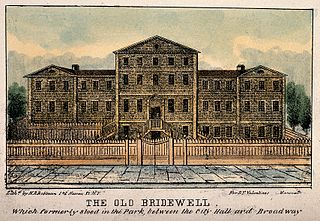Members of the New York committee investigating that incident spoke with Glorianna Betts, wife of the inoculating doctor. She revealed “That Lieut. Seymour from Long Island had informed her, that seven persons of the Army (Officers as she understood) on Long Island, were taking mercurial preparations, and as he supposed, were inoculated, or preparing to be inoculated for the small pox.”
Mrs. Betts was probably trying to win favor for her husband, either by pointing out that officers wanted to be inoculated or by giving up someone else to the authorities.
It didn’t work. The New York government was already familiar with Dr. Betts, having locked him up in January for denigrating the provincial and Continental Congresses. On 3 April the committee of safety had freed him on the condition that he
will not bear arms against the inhabitants of the American Colonies, or do any other act inimical to the liberties of the United Colonies, or contrary to the resolutions of Congress, during the present controversy between Great Britain and the American ColoniesThe doctor also had to pay his “expenses while in confinement” and give a bond for £200 for “future good behaviour.”
Yet less than two months later, Dr. Betts had gone back to his “business” of smallpox inoculation despite knowing it was against the provincial and army rules. He thus potentially spread the disease, weakened the army, and panicked the local population. No surprise, the New York congress locked him up again.
The next we hear from Dr. Betts is on 14 June, when he petitioned the congress:
That your petitioner hath been for some time past Confined in the New Goal of the city of New York.Five days later he petitioned again, adding:
That the cause of his confinement is that he hath violated a Resolve of the Honorable Provincial Congress, he having inoculated some officers in the service of this Country.
That your petitioner meant not to injure those gentlemen who were inoculated, nor to show any contempt to your worshipfull house, but ardently wished to render his best services to those who had the Command in relieving them from those fears which people in general have who are subject to that disorder.
That your petitioner is extreamely sorry for the offence he hath given his countrymen and your honorable Body in particular, and prays that he may be released from his confinement and suffered to go at large, and your petitioner doth hereby promise and engage that he will not for the future by word or deed counteract the orders of your Honorable house
That he is in great distress owing to the great Expense he for a long time past hath been to lay in Confinement, his being out of Business and having a large Family; That he is sorry for his imprudent Conduct and sincerly wishes that the Colonies may Injoy the present glorious strougle and Injoy their rights and Liberties uninviolated and their present Contest be crouned with success.That offer appears to have been acceptable to the Patriot government. As of 14 July, Dr. Betts was listed as “dischd. gave Bond.”
That the Petitioner is willing and desirous to be removed out of the Goal and to be permitted to live in the Country. He would therefore Humbly pray to be removed to the North Castle in west Chester County and have the Liberty of riding Ten or fifteen miles into the Country to visit his Patients, he will especially give security not to exceed the Limets assigned to him and in all things to observe the orders of this Honourable House.
Years later, Betts rewrote this episode in his testimony to the Loyalists Commission. He didn’t mention treating Continental Army officers, apologizing, or offering to live in rural exile. Instead, his claim was:
After his return from Œsopus the Claimt. was tried by the Provincial Congress for carrying Intelligence to ye Enemies & was sentenced to die, and was lying in Gaol under that sentence just as the Brit. troops came.Curiously, he also testified that he “Made his escape just before New York was taken.” I guess if you’re going to make up why you were put in jail, you might as well make up a jailbreak as well.
In any event, once the British military took Manhattan in the fall of 1776, Dr. Betts became a firm Loyalist inside the city. He “Had a Warrant as a Capt.’s Lieut. in the King’s American Rangers,” recruiting men, and was also “made Surgeon of Queen’s Rangers by Genl. [William] Howe.”
In May 1783, Azor and Glorianna Betts and their children came to St. John, New Brunswick. He resumed his practice “in the Physical Line,” later moving to Kingston at the urging of settlers there. Reportedly he continued to treat people against smallpox, switching to the new vaccine method.
Dr. Betts died in Digby, Nova Scotia, in 1811, according to a family gravestone. (Printed sources say he died in 1809.) Glorianna Betts died in St. John in 1815.
TOMORROW: Back in New York…

No comments:
Post a Comment